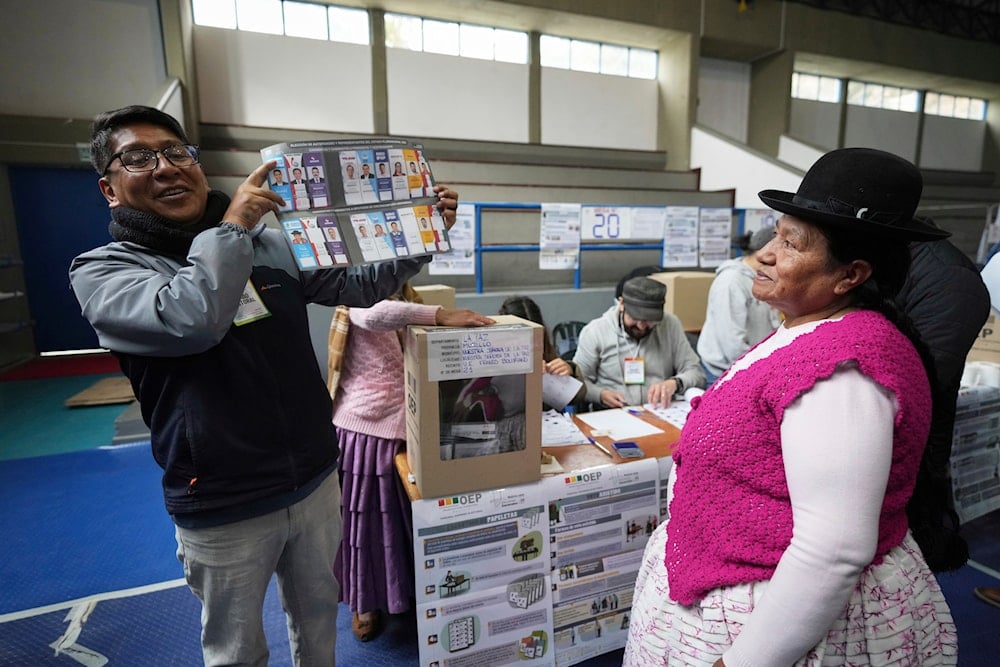Bolivia kicks off presidential, congressional elections
Bolivia's 2025 elections unfold amid economic turmoil, with right-wing candidates Samuel Doria Medina and Jorge Quiroga challenging the ruling MAS party.
-

An electoral official displays a ballot listing presidential candidates during general elections in La Paz, Bolivia, Sunday, Aug. 17, 2025 (AP)
Bolivians went to the polls on Sunday to vote in presidential and congressional elections held amid a severe economic crisis and an inflation that hit its highest level in four decades.
Former leftist President Evo Morales is not partaking in the elections as he is barred from running.
Bolivian voters are casting their ballots to elect a new president and representatives to the Chamber of Deputies, comprising 130 members, and the Senate, comprising 36 senators.
Ten candidates have registered to compete in the presidential election, though none currently holds a decisive lead in the polls, meaning that if no candidate secures a majority, a runoff will be held on October 19.
Economic woes drive political shift in the current elections
Public discontent is growing against the MAS party as economic difficulties, particularly rising inflation, contribute to a shifting political landscape in the country.
The rising dissatisfaction has created an opening for right-wing figures such as businessman Samuel Doria Medina and former President Jorge "Tuto" Quiroga to attract more support ahead of the election, with recent polls indicating their increasing popularity even as a significant portion of voters remain undecided.
Survey data indicate voters are preparing to reject the ruling Movement towards Socialism (MAS), which has held power since 2005 when Evo Morales became Bolivia's first Indigenous president. With Luis Arce, Morales' unpopular successor, opting not to run for re-election, center-right businessman Samuel Doria Medina and former right-wing president Jorge "Tuto" Quiroga have emerged as the leading contenders to take over the presidency.
Right-wing leads the polls
Recent polling data placed 66-year-old Samuel Doria Medina and 65-year-old Jorge "Tuto" Quiroga in a tight race with approximately 20% support each, while six other contenders, including left-wing Senate leader Andronico Rodriguez, remained significantly behind in the competition.
The leading candidates have pledged to implement sweeping reforms to Bolivia's economic system, promising to reduce government expenditures, attract foreign investment, and strengthen relations with the United States, ties that had weakened under the confrontational leadership of Morales, who openly identified as an anti-capitalist and anti-imperialist leader.
Morales tries to influence the elections
During Morales' presidency, Bolivia experienced more than ten years of robust economic expansion and advancements for Indigenous communities, as his administration nationalized the natural gas industry and reinvested the revenues into welfare initiatives that reduced extreme poverty rates by half.
However, due to insufficient investment in exploration, gas revenues have collapsed dramatically, dropping from their highest point of $6.1 billion in 2013 to just $1.6 billion in the most recent year.
As Bolivia's vast lithium reserves remain untapped, the government now faces critically low foreign currency reserves, struggling to secure imports of fuel, wheat, and other essential food products.

 3 Min Read
3 Min Read








